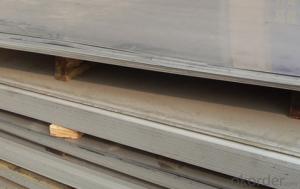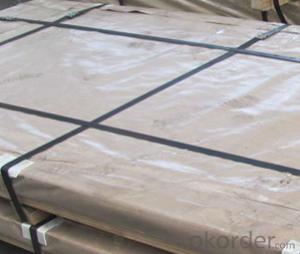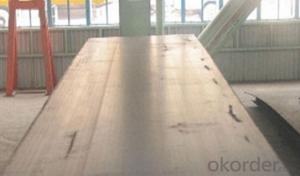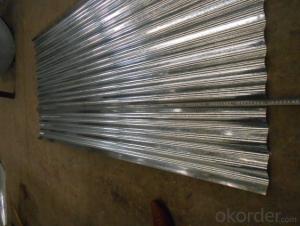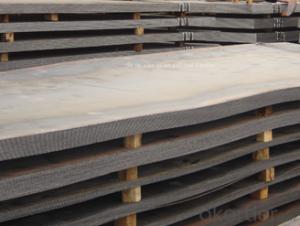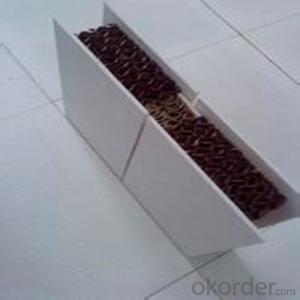Mild Carbon Steel Sheets Q235 CNBM
- Loading Port:
- Qingdao
- Payment Terms:
- TT OR LC
- Min Order Qty:
- 10 pc
- Supply Capability:
- 30 pc/month
OKorder Service Pledge
OKorder Financial Service
You Might Also Like
Quick Details
| Grade: | 300 Series | Standard: | JIS, AISI, ASTM, DIN, EN | Length: | 1000-6000 |
| Thickness: | 0.5-100mm | Width: | 1000-2000 | ) | |
| Brand Name: | putan | Model Number: | Q235.Q345 | Type: | Plate |
| Application: | Construction plate,boiler plate,container plate,shipbuilding plate,all | Certification: | BV | type: | plate |
Packaging & Delivery
| Packaging Details: | Export standard package,bundled or be required. The inner size of container is below: 20ft GP: 5.8m(length) x 2.13m(width) x 2.18m(high) 25tons about 24-26CBM 40ft GP: 11.8m(length) x 2.13m(width) x 2.18m(high) 25tons about 54CBM 40ft HG: 11.8m(length) x 2.13m(width) x 2.72m(high) 25tons about 68CBM |
| Delivery Detail: | 7-15 days after receiving the deposit |
Specifications
Q235 Carbon sheet
Original :China
thickness 0.5mm~100mm,
coil steel Processing.
MOQ : 25TON
Carbon Steel plate
Product | SS400 carbon steel plate price |
Standard |
GB/T700-2006,ASTMA283/A283M-03,ASTMA572/A572M,JISG3101-2004,SS400, JIS G3135-1986,SPEC590,EN10025/2-2004,S235JR or S235J2,E335 or S335JR…
|
Width | 500-2000mm |
WT | 0.5 –60mm |
length | 2000—6000mm |
Applications range |
Construction plate,boiler plate,container plate,shipbuilding plate,all kinds of industries and manufacturing structural applications.
|
MOQ | 25 ton / according to customers' requirement |
Quality | good attestation of honour choosed by customers SGS |
Supply capability | 5,000 ton / month |
Key to success | advanced technique and service and low price |
Authentification | ISO9001:2008 |
Market | North/South America, Europe, Asia,Africa,Mid East,ect. |
Packaging |
Standard seaworthy packing / according to the customers’requirement
|
Port | |
Delivery term |
T/T,L/C 30% deposit the balance before shipment,the balance paid by the copy of B/L OR L/C at sight
|
Delivery time | In 15 – 45 days after contract |
- Q:What are the different sheet metal stamping techniques for steel sheets?
- There are several sheet metal stamping techniques for steel sheets, including blanking, piercing, bending, deep drawing, and embossing.
- Q:How are steel sheets produced?
- Steel sheets are produced through a process called hot rolling, where a steel slab is heated and passed through a series of rolling mills to reduce its thickness and obtain the desired sheet size.
- Q:Are steel sheets suitable for roofing?
- Yes, steel sheets are suitable for roofing. Steel is a strong and durable material that can withstand various weather conditions, including high winds, heavy rain, and snow. It also offers excellent protection against fire and is resistant to corrosion. Additionally, steel sheets are lightweight, easy to install, and can be designed in different styles and colors to enhance the aesthetic appeal of a building.
- Q:Are steel sheets suitable for decorative applications?
- Indeed, decorative applications can benefit from the suitability of steel sheets. The versatility, durability, and aesthetic appeal of steel sheets allow for their use in a wide range of decorative purposes. They can be easily shaped, sized, and patterned to fit different needs. Steel sheets offer various possibilities for creating decorative elements such as wall panels, room dividers, ceiling tiles, and facades. They can also be utilized for decorative accents like trims, moldings, and decorative screens. The sleek and reflective surface of steel sheets adds a touch of modernity and elegance to any space. Furthermore, steel sheets can be enhanced with different finishes and coatings to further enhance their decorative properties. These options include paints, powder coatings, patinas, and even specialized coatings like faux rust or metallic finishes. With these choices, steel sheets can complement any interior or exterior decor style, opening up a wide range of design possibilities. Additionally, steel sheets are highly durable and long-lasting, making them suitable for both indoor and outdoor decorative applications. They are resistant to corrosion, fire, and extreme weather conditions, ensuring that the decorative elements made from steel sheets maintain their appearance and functionality over time. To sum up, steel sheets are an excellent choice for decorative applications. Their versatility, durability, and aesthetic appeal make them a perfect option for creating visually appealing and long-lasting decorative elements in various settings.
- Q:What is the thickness tolerance for steel sheets?
- The thickness tolerance for steel sheets can vary depending on the specific grade of steel and the manufacturing process. In general, the industry standard for steel sheet thickness tolerance is typically ±0.005 inches (0.13 mm). However, it is important to note that different applications and industries may have their own specific tolerance requirements. Therefore, it is essential to consult the relevant standards and specifications for the specific steel sheet being used to determine the appropriate thickness tolerance. Additionally, some manufacturers may offer tighter tolerances based on customer requirements or specialized applications.
- Q:How do you determine the quality of steel sheets?
- The quality of steel sheets can be determined by evaluating factors such as the grade or type of steel used, its thickness and weight, surface finish, and dimensional accuracy. Additionally, conducting various tests like hardness testing, tensile strength testing, and checking for any defects or impurities can help determine the overall quality and suitability of the steel sheets for a particular application.
- Q:Can the steel sheets be used for medical equipment?
- Yes, steel sheets can be used for medical equipment. Steel is a commonly used material in the medical industry due to its strength, durability, and resistance to corrosion. It can be used to manufacture various medical equipment such as surgical instruments, hospital beds, medical carts, and diagnostic machines. Steel sheets can be easily molded and fabricated into different shapes and sizes, making them suitable for specific medical equipment requirements. Additionally, steel is known for its hygienic properties as it can be easily sterilized, making it a suitable material for medical equipment that needs to be sanitized regularly.
- Q:Can steel sheets be used for elevator flooring or platforms?
- Yes, steel sheets can be used for elevator flooring or platforms. Steel is a durable and strong material that can support the weight and traffic typically experienced in elevators. It is commonly used in the construction of elevator floors and platforms due to its resilience and safety features.
- Q:What are the common thicknesses for aluminum-coated steel sheets?
- The common thicknesses for aluminum-coated steel sheets typically range from 0.015 inches to 0.125 inches.
- Q:How do steel sheets perform in terms of vibration resistance?
- Steel sheets generally offer good vibration resistance due to their high stiffness and density. The inherent properties of steel, such as its strong and rigid structure, enable it to dampen vibrations effectively. Steel sheets have high natural frequencies, which means they can resist a wide range of vibrations and minimize the amplification of vibrations that may occur in other materials. Additionally, steel sheets can be further enhanced with various techniques, such as adding damping materials or using special coatings, to improve their vibration resistance even more. Overall, steel sheets are considered to be a reliable choice when it comes to applications requiring vibration resistance.
1. Manufacturer Overview |
|
|---|---|
| Location | |
| Year Established | |
| Annual Output Value | |
| Main Markets | |
| Company Certifications | |
2. Manufacturer Certificates |
|
|---|---|
| a) Certification Name | |
| Range | |
| Reference | |
| Validity Period | |
3. Manufacturer Capability |
|
|---|---|
| a)Trade Capacity | |
| Nearest Port | |
| Export Percentage | |
| No.of Employees in Trade Department | |
| Language Spoken: | |
| b)Factory Information | |
| Factory Size: | |
| No. of Production Lines | |
| Contract Manufacturing | |
| Product Price Range | |
Send your message to us
Mild Carbon Steel Sheets Q235 CNBM
- Loading Port:
- Qingdao
- Payment Terms:
- TT OR LC
- Min Order Qty:
- 10 pc
- Supply Capability:
- 30 pc/month
OKorder Service Pledge
OKorder Financial Service
Similar products
New products
Hot products
Related keywords
